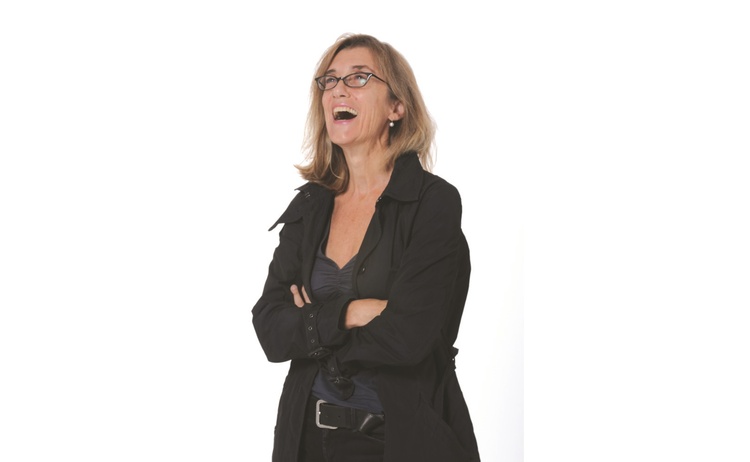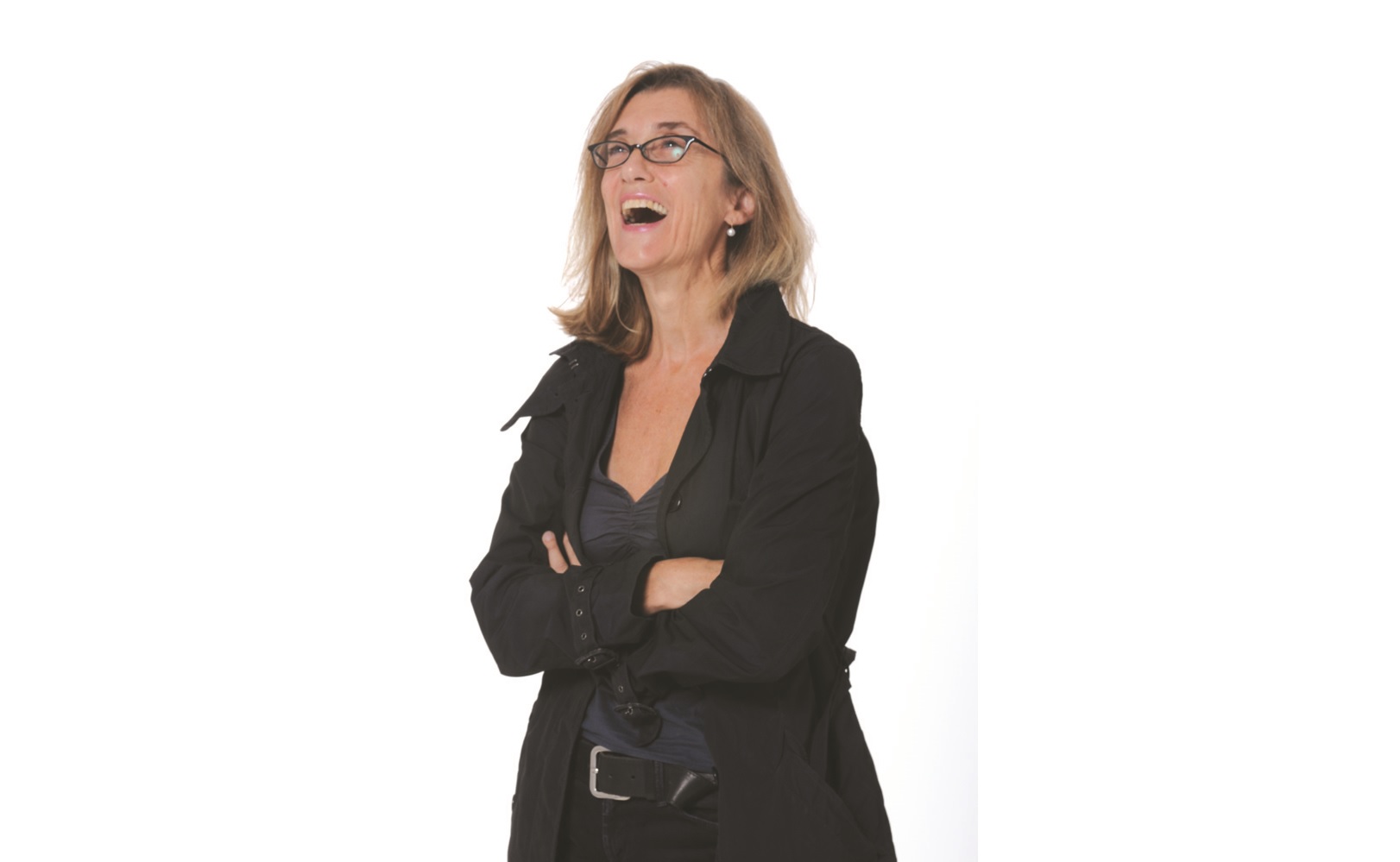Each year, she spends six months here and six months there, living between two cultures: the one she was born into and the one she adopted when she married her husband Graeme.
Venturi is a journalist with an impressive resume, having worked for prominent Italian publications such as Il Manifesto and Marie Claire Italia.
She sees the world from a different perspective, somewhere between her two great professional passions: fashion and politics.
Like all good journalists, she engraves important dates in her memory, like the first time she saw the place that would soon become her home away from home: Sydney.
“I first came to Australia in 1977, a few months after I’d met my husband,” she recounts.
“He was born in Melbourne but has always lived in Sydney.
“I didn’t fall in love with the city at first sight: yellow brick buildings, beaches too long for a granddaughter of Cinque Terre locals, British-style houses... And all under a scorching sun.
“It was a strange mixture that I couldn’t decipher and I felt displaced.”
But as a journalist, it’s in Ventura’s nature not to judge a book by its cover.
“I decided to study the city and its history,” she says.
“I read novels by Tim Winton, Patrick White, Peter Carey and Christina Stead, and went to the Art Gallery of New South Wales to observe the works of talented local painters.
“Given that I wrote about cinema back then, I also watched all the Aussie classics.
“The more I learnt about the place and its culture, the more I fell in love with it.”
The city Venturi was getting to know was Sydney in the late ‘90s.
The city was going through radical changes during that era, and was soon to be launched onto the international stage with the Sydney 2000 Olympics and its unresolved issues with Aboriginals, who got both recognition and apologies from the Australian government at the time.
The boom in construction and economic development in those years transformed the city into a global capital.
“Twenty years ago, Sydney had far less traffic and the waterfront wasn’t as developed as it is today,” Venturi says.
“Barangaroo didn’t exist and I didn’t feel its absence; also, you could eat out without breaking the bank.
“Now, Sydney has become more sophisticated and cosmopolitan – one of the world’s capitals.
“The city has a legendary lifestyle: you can go for a swim in the ocean before going to work, then you can leave the office and go for a walk through the park which is just like a forest, complete with wildlife and jacarandas in bloom.
“But it’s becoming difficult to live here and more and more people want to leave the city.
“The traffic is terrible and public transport is inadequate; travelling around is tedious and everything costs too much.
“Sydney has to make sure it doesn’t destroy itself by losing its soul and becoming a city for the rich.”
Milan is another large city which is also a capital – if not of the world, of Europe.
But there’s a difference between the two cities... And it’s not exactly subtle.
“They’re like day and night,” Venturi says.
“Milan is completely focused on work and everything’s indoors.
“There’s no ocean, not even a river, and there’s hardly any green.
“On the other hand, Sydney’s a very ‘physical’ where people spend a lot of time outdoors.
“But I must say, after the Milan Expo, the city’s experiencing a renaissance: it’s more youthful, greener, more international and more beautiful.”
These differences separate Venturi’s lives in both cities, along with her free time, or lack thereof, in Milan.
“When I do have some free time, I escape to the beach, lakes or mountains,” she explains.
“I go to the cinema, theatre, design and fashion exhibitions, and dinner with friends... Or I read.
“In Sydney, I swim, go to the beach and attend the Sydney School of Arts and Humanities, a creative writing school that’s also a small publishing house and has many interesting initiatives.
“One of them is a literary magazine which I collaborate on, interviewing Australian writers.”
On the other hand, one thing that remains a constant in both Milan and Sydney, along with writing, is walking.
“Here, I explore the city and I have lots to discover, one bit at a time,” she says.
“Then when I’m in Milan, I rediscover the city and find out what’s changed in my absence.”
Absence is another theme in Venturi’s life.
Living between two cities so close yet so far away means she’s always completely absent from one or the other.
“When I’m in Sydney, I miss the fact that in Milan, I can go and visit a friend on a whim because it’s easy to get everywhere,” she reflects.
“I miss its excellent health service, both public and private.
“I miss going to the supermarket and buying a trolley full of things for only €50.
“I miss the taste of certain vegetables which aren’t as flavoursome here.
“And obviously, I miss my mum, sister and friends.
“Then there’s the beach in Liguria, a region where part of my family comes from and where I have very strong roots.
“When it comes to Italy in general, I miss the flexibility of Italians and their extraordinary ability to solve problems with inventiveness and creativity... In this sense, Italy beats Australia.”
Then, when she returns to Milan, Venturi misses “the ocean, sky, open spaces, nature, colours and multiculturalism”.
“I also miss the kindness of the locals,” she adds.
“And it’s amazing outdoor pools!”
Though she’s now officially retired, Venturi has no intention of abandoning her passion for journalism.
In fact, her double life has allowed her to collaborate with Italian and English newspapers, writing about Australia and life Down Under.
“I find it very interesting to look at the world from an Australian geopolitical perspective,” she says.
“Europe isn’t at the centre; the focus is on relations with Asia and its global powers.
“Lately I’m observing the oceans a lot because I’m an Australian correspondent for Sirene, a magazine devoted to the ocean and its conservation.
“I also interview famous Australian writers for a literary magazine.”
Who of the writer’s she’s interviewed was she most fascinated by?
“It’s hard to choose just one,” she says.
“I can say that Thomas Keneally impressed me with his amazing storytelling skills and openness.
“I visited him at the Sydney Mechanics’ School of Arts and I could’ve stayed there for days listening to him talk about the most intricate details of Australian history like only he knows how to do.
“Another encounter I hold close to my heart was with Michael Wilding, Emeritus at the University of Sydney, writer and a protagonist of the city’s cultural life since the ‘60s.
“I’m currently reading his latest book, Wild About Books, which is charming.
“He’s a special person and we’ve kept in touch... Sometimes he sends me bibliographies for some of my research on the history on female journalists, among them Louisa Lawson, the mother of the famous Australian poet.”
When asked who she’d love to interview, Venturi names two people without hesitation.
“For sentimental reasons, I’d choose Dawn Fraser, my swimming idol since I was a child,” she says.
“I’d also like to interview my favourite architect in Sydney, who’s also from Milan: Luigi Rosselli.”
What questions would she ask them?
“I’d ask Dawn Fraser to talk about when she was a young girl and trained at the port in Balmain, and about that infamous night when she allegedly stole an Olympic flag in Japan, which led to the Australian Swimming Union suspending her for 10 years.
“It was a foolish and unforgiveable decision.
“When it comes to Rosselli, I’d ask if I could follow him on one of the many projects he breathes life to in his studio.
“Architecture and design are my passion... I’m Milanese after all.”
Though her life is split between two completely different worlds, one thing’s always remained unchanged: her husband Graeme.
But who fits in to a new country first: an Italian or an Australian?
“I think it’s much the same,” Venturi says.
“My husband was a flight assistant for 30 years so he’s used to being a nomad... He’s a true citizen of the world.
“When it comes to Italy and Milan, he enjoys a certain refinement and is in love with our history and art, but above all adores life in the Ligurian village where we go on holidays.
“He likes the simple Mediterranean lifestyle, the small village where everyone knows each other, where vegetables come from the garden and you can go out on the boat to fish.”
It seems the couple are a perfect fit.
Venturi concludes:
“As my husband says, deep down Italians and Australians have a lot in common.”












